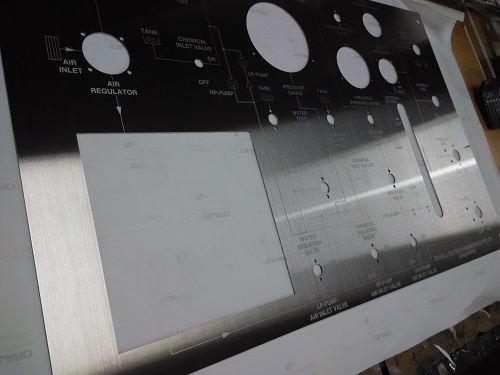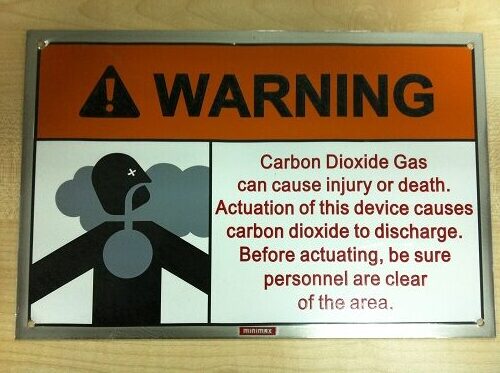Chemical Etching Services in Singapore



Request for Information on Chemical Etching & More
What is Chemical Etching
2 minutes read
Chemical etching, also known as chemical milling or industrial etching, is a subtractive manufacturing process that uses baths of temperature-regulated etching chemicals to remove material from a metal surface, creating an object with the desired shape. This process is commonly used in the manufacturing of precision parts and components for industrial purposes. It is renowned for its ability to create parts that are highly complex and difficult to manufacture with traditional methods.
Here’s a detailed look at each step involved in chemical etching.
1. Material Selection
The first step in the process is to choose the right material. A wide range of metals can be chemically etched, including steel, stainless steel, copper and its alloys, nickel and its alloys, aluminium, and titanium. The metals can range in thickness from 0.010 mm to 1.5 mm and sheet sizes up to 600 mm x 1500 mm. The material selection will depend on your specific application requirements.
2. Pre-Clean
After the material is selected, it undergoes a rigorous cleaning process. This involves removing debris, waxes, and rolling oils that could interfere with the chemical etching process. The cleaning ensures that the metal surface is free from any contaminants that might affect the final result.
3. Lamination
Once cleaned, a light-sensitive photoresist is laminated onto the metal sheet. This step is crucial for the precision of the finished product. Poor adhesion could lead to blemishes or inaccuracies during the process, as it might allow the etchant to come into contact with areas of the metal that should remain protected.
4. Printing
In the next step of the process, a photo-tool mask containing the desired design is prepared, and the laminated sheet is exposed to ultraviolet (UV) light. This transfers the component design onto the photoresist, which undergoes a chemical change upon exposure.
5. Developing
The sheet is then developed to remove the unexposed photoresist, revealing the raw metal where the etching will occur. The hardened areas of the resist will protect the metal during the etching process.
6. Chemical Etching
Chemical etching agents, commonly using ferric chloride, are applied to the prepared metal sheet. Experts meticulously calculate the duration for which the sheet should be etched, considering factors like the kind of metal, its quality, thickness, and dimensions, as these elements influence the final outcome.
7. Stripping
After chemical etching, the remaining photoresist is stripped away to unveil the finely etched components. This reveals the intricate designs that have been chemically etched into the metal.
8. Visual and Dimensional Inspection
After the chemical etching process is over, each component is subjected to rigorous visual and dimensional inspection using advanced optical inspection equipment to ensure that it meets the desired specifications.
Benefits of Chemical Etching
The following are the several benefits of using chemical etching as a manufacturing process:
Precision Manufacturing
It is capable of producing intricate designs and tight tolerances due to the ability to selectively remove material from the metal sheets. This makes it ideal for creating high-quality precision components that require accuracy and repeatability.
Cost-Effective
The process is a highly efficient manufacturing process that can produce large quantities of precision components quickly and cost-effectively, without the need for expensive tooling. It is the perfect choice for those looking to increase production volume while reducing manufacturing costs.
Versatility
Its versatility in working with a wide range of materials allows people to choose from a range of suitable materials for their specific application. This adaptability ensures there is no compromise on quality or accuracy, making it a popular choice for those looking to produce components that meet strict specifications and high-quality standards.
Why Get Chemical Etching Services From Us
At Million.com.sg, we take great pride in our ability to craft a variety of top-quality chemically etched items or components to suit your unique needs. From sleek brass and steel plaques to durable sign boards, we use the latest chemical etching technology to produce intricate designs with unparalleled precision. Our name tags and labels are also made with the utmost care and attention to detail, ensuring that they are not only functional but also visually stunning.
Read More
Everyday Queries about Chemical Etching Services in Singapore
How do you ensure the quality and accuracy of the chemical etching process?
What measures do you have in place to prevent errors or defects in the process?
To ensure that errors or defects are prevented, we employ a multi-layered approach that includes strict quality control measures, highly trained professionals, innovative technology, and material inspections. Our team of experts carefully inspects all materials before the chemical etching process to ensure that they meet the required standards and specifications. We conduct rigorous inspections and tests at every stage of the process to catch any errors or defects early on and correct them promptly.
Can I request a sample of your chemically etched products before placing an order?
Yes, at Million.com.sg, you are welcome to request for our chemically etched products upon request. We understand that our clients may want to verify the quality of our chemical etching process before placing an order, and we are happy to accommodate these requests. Our commitment to excellence ensures that our clients receive the results that they want.
What industry standards and regulations do you follow when performing chemical etching services?
When performing chemical etching services, we follow several industry standards and regulations to ensure the safety of our workers, protect the environment, and maintain compliance with government requirements. The team complies with the Environmental Protection and Management Act (EPMA), Work Safety and Health Act, and SS 586 on Specification for Hazard Communication for Hazardous Chemicals and Dangerous Goods. We obtain necessary permits and licences, provide proper labelling of chemicals, and provide safety training for our workers. Additionally, we implement safe disposal practices for chemical waste. Our company prioritises compliance with regulations to ensure that we provide high-quality services to our clients while maintaining a safe and responsible operation.
Does Million.com.sg provide delivery services?
What is your return policy for products that undergo chemical etching?
Our company has a return policy for our products that undergo chemical etching, with the period of coverage specified on the issued printed invoice provided. In the unlikely event of a product defect, we will either replace the product or provide a refund of the purchase price. Please note that our warranty does not cover product damage caused by misuse, abuse, accident, neglect, or mishandling by the customer or others. If the purchaser registers the product online within 90 days following the purchase date, the warranty period will be extended by an additional 3 months.
How can I request a quote for chemical etching services, and what factors determine the cost of the process?
You can request a quote for our chemical etching services by simply filling out the service enquiry form provided below. Indicate your name and contact details, the service you’re interested in availing and uploading a sample drawing of your desired product result. For further questions, you can reach out to us at cu*******@mi*****.sg or call us directly at +65-6292 0083. Please let us know how we can assist you.
